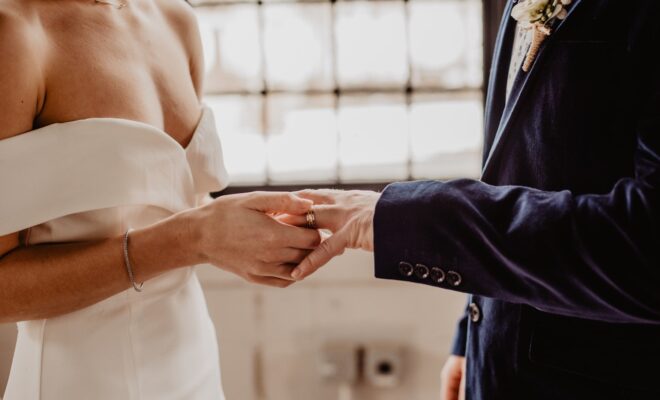
Planning a Wedding – The Legalities You Must Know
Planning a wedding can be one of the most exciting times in a bride’s life! There’s organising the flowers, writing the guest list, picking the rings, and of course, the dress fittings.
Many women have dreamt about their big day since they were little girls playing with dolls, but one of the biggest things we fail to consider is the list of legalities that our weddings must satisfy.
Why the Legal Side is Important
Of course, thinking about legalities isn’t something that fills most brides with excitement, but it’s vital that we get these bits right and ensure that we’ve ticked all the boxes before planning the rest of the day.
After all, when the officiant asks that fateful line, “speak now or forever hold your peace”, we really don’t want a soap-opera-esque scene where someone raises their hand with a legal objection! For this reason, getting good matrimonial legal advice is a must.
Civil vs Religious Venues
There are many different venues you could hold your wedding in, from old barns to rollercoasters, synagogues to churches, but there are legal requirements around each one that you really cannot afford to ignore.
If you are getting married in a civil service, you must ensure that the venue and the officiant (the person who will be conducting the marriage) is fully licensed to conduct and register a wedding. For religious ceremonies, the same applies.
Most ceremonies, be they religious or civil, will require the couple to give at least 28 days’ notice in person before they are due to marry, with the proviso that they then marry within 12 months. In Christian religious settings, this is called Reading of Banns and will be done on the three consecutive Sundays before your wedding is due to take place.
Getting the Wording Right
If you are having a religious service, your priest, vicar, pastor or other religious leader will guide you through the wording of your wedding. You may choose to write your own vows for the service, and they will ensure they fit within the law and within your particular tradition.
For a civil service, it is important to note that no religious imagery can be used at all. No mention of God or even Angels may be used, even in self-written vows. This can prove a problem for some people, especially those of the Pagan paths, who find their handfasting ceremonies are not legal. In cases like that, the couple may need to take a civil service before or after their handfasting ceremony to “legalise” the marriage.
Getting the Right Documents
Filling in the wedding documents can be a lengthy task, but it is vital that it is carried out as quickly and as accurately as possible.
You will normally be asked to provide identification, such as birth certificates, and any other relevant documentation — including previous divorce certificates. This is to ensure that everyone planning to marry is legally allowed to do so.


You must be logged in to post a comment Login